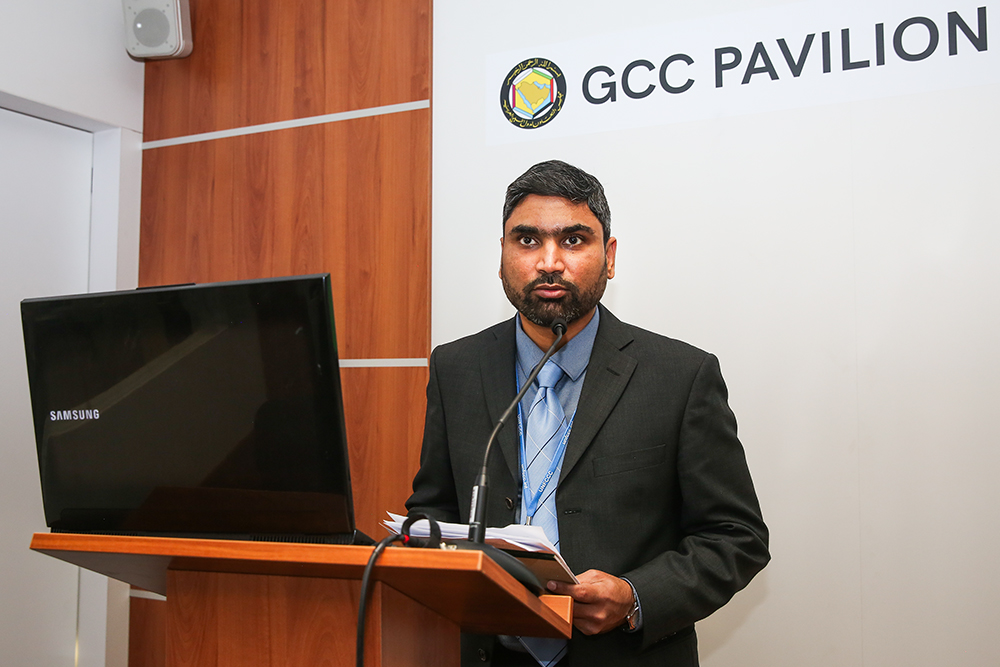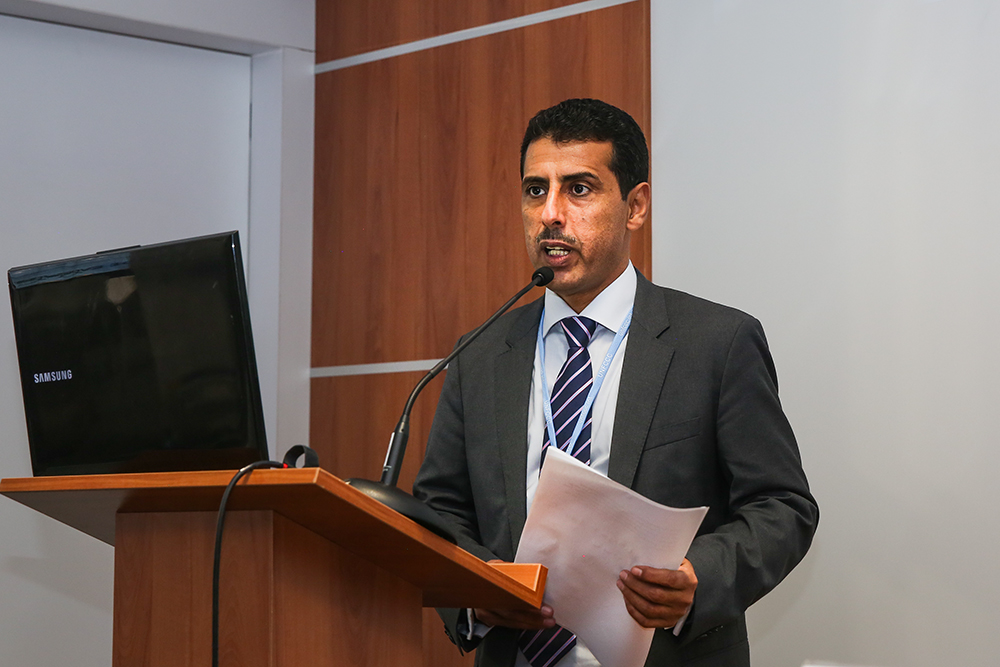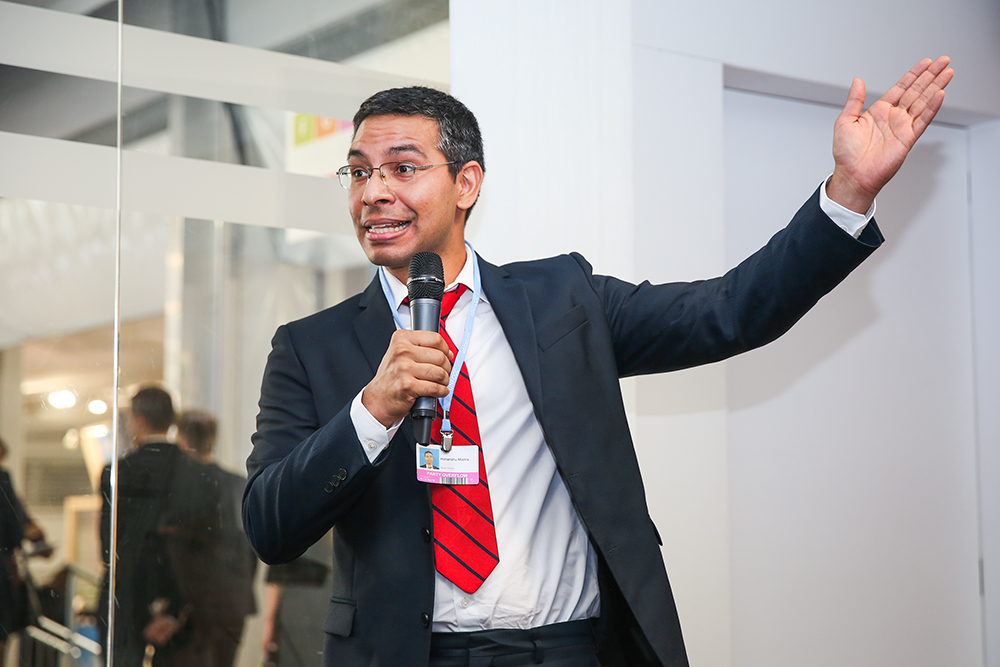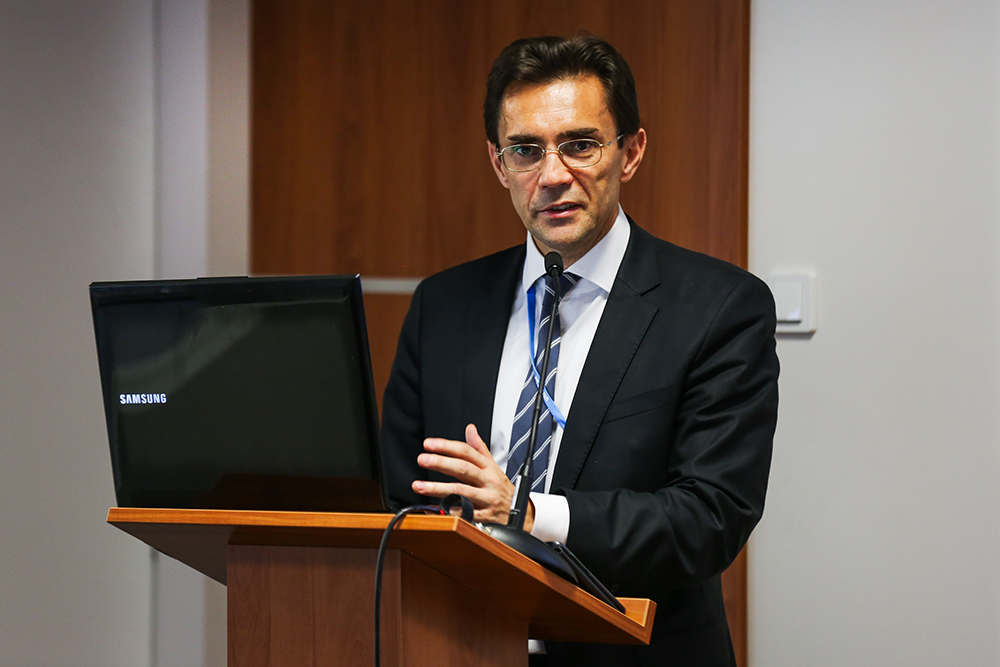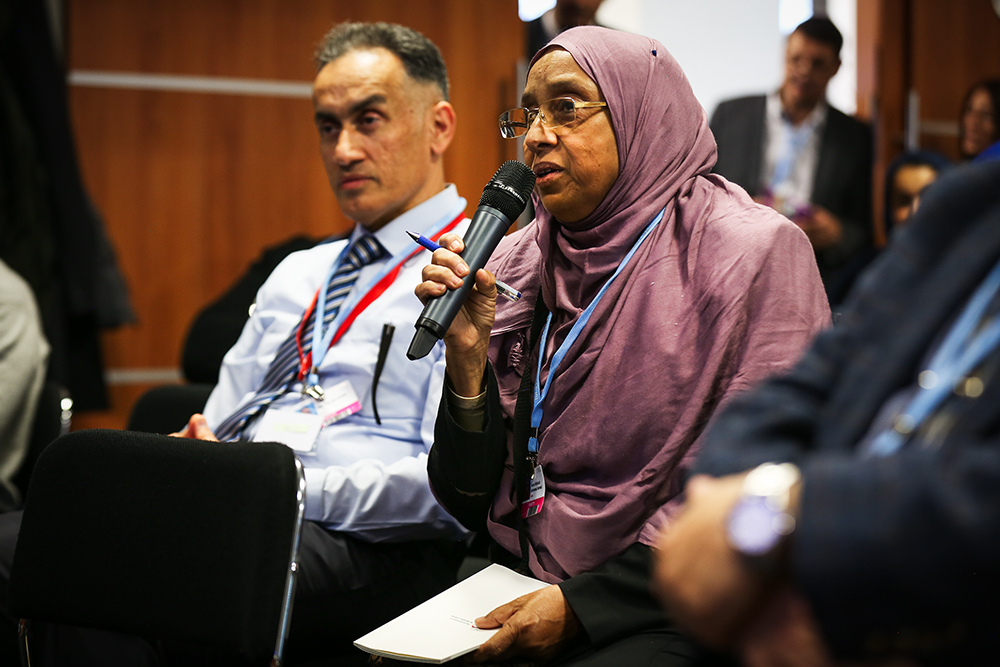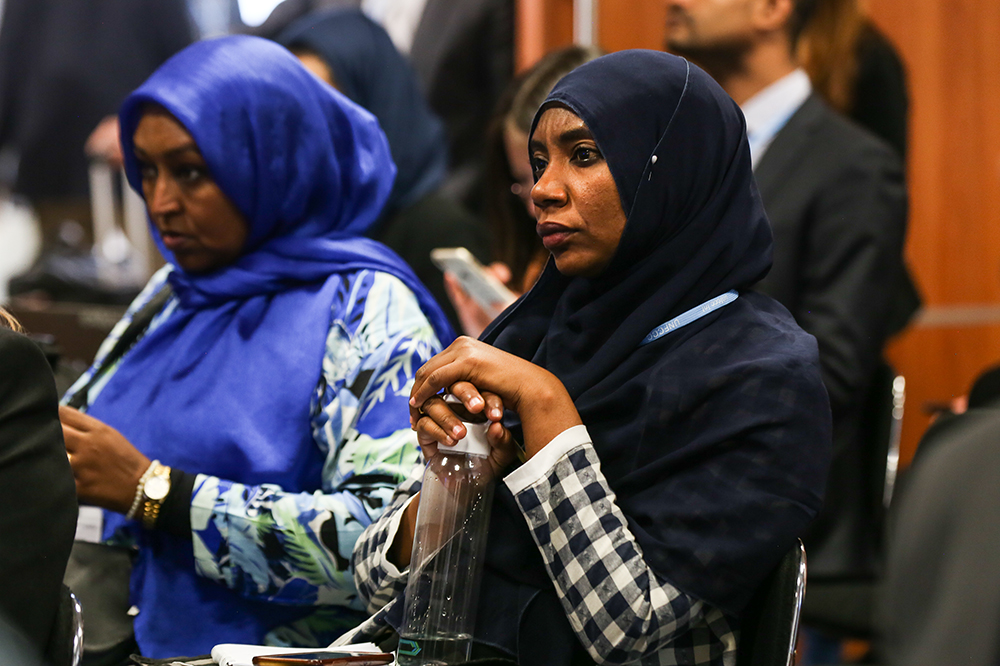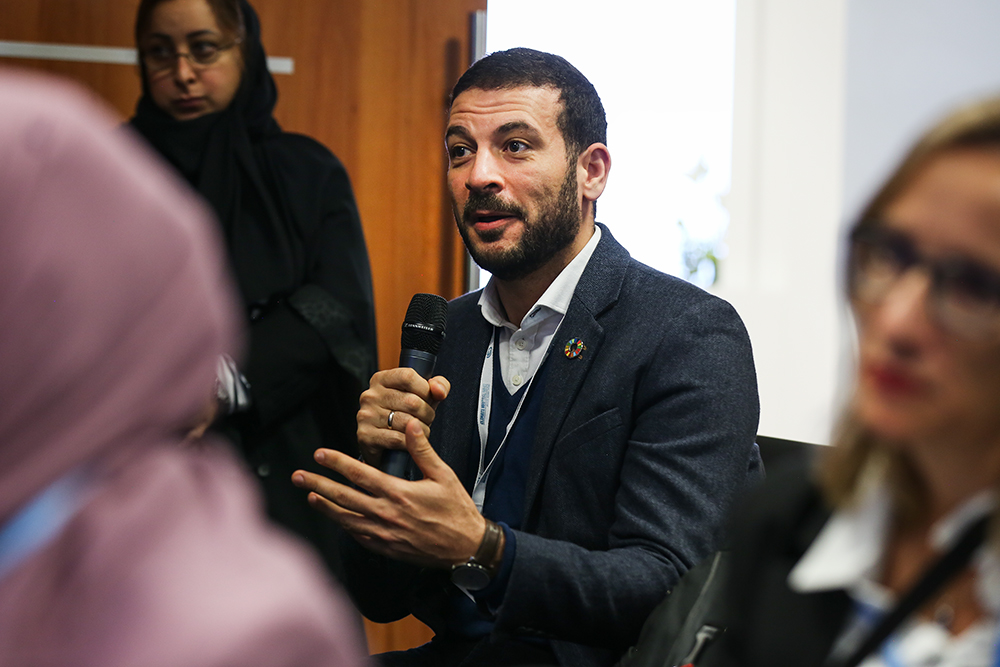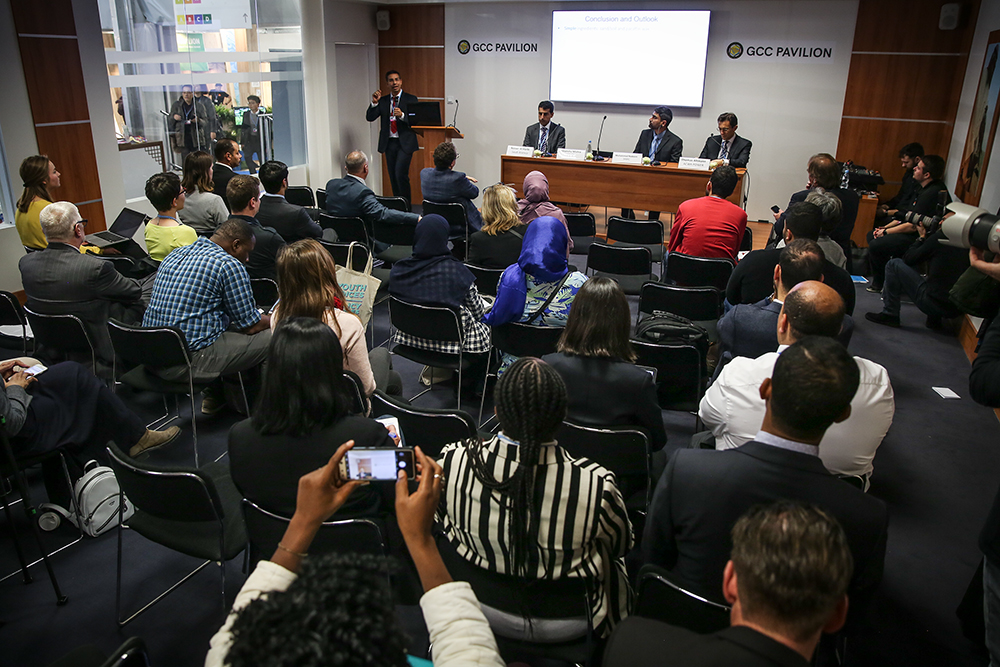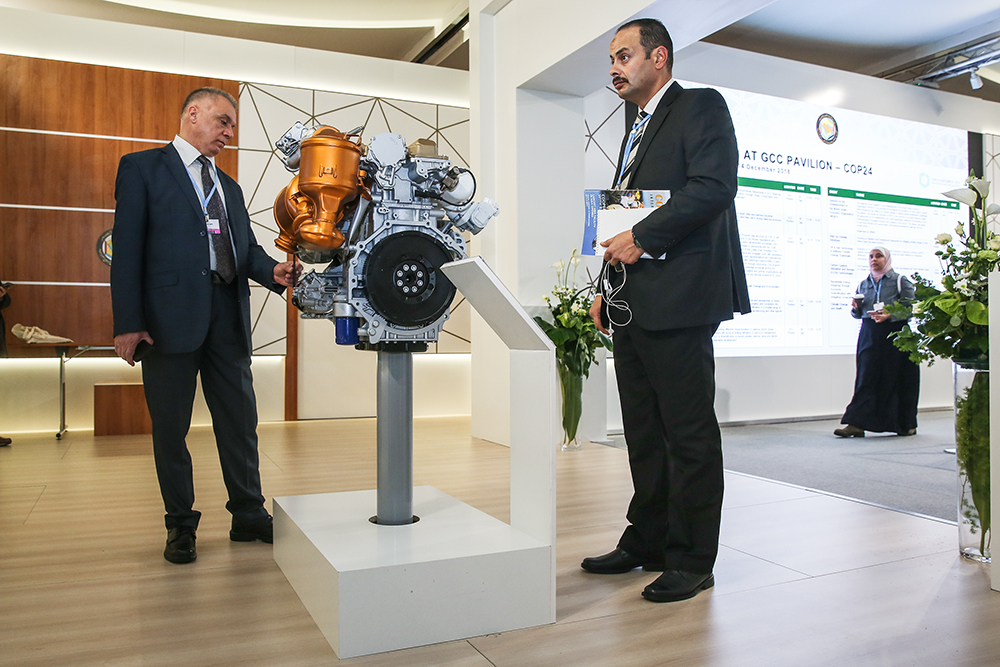Summary
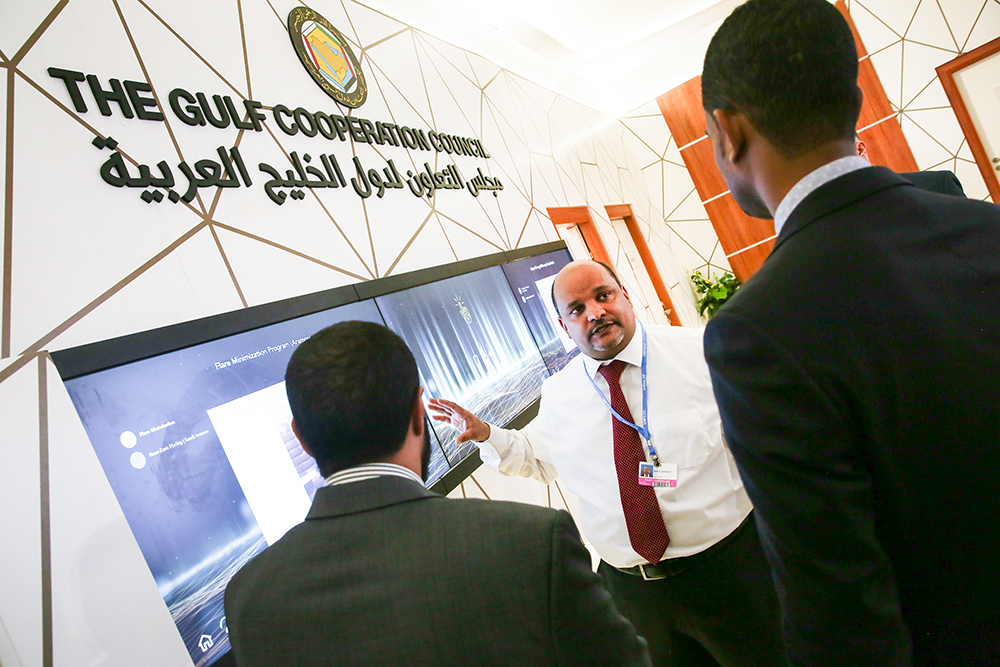
Posted by IISD Reporting Services on Thursday, 6 December 2018
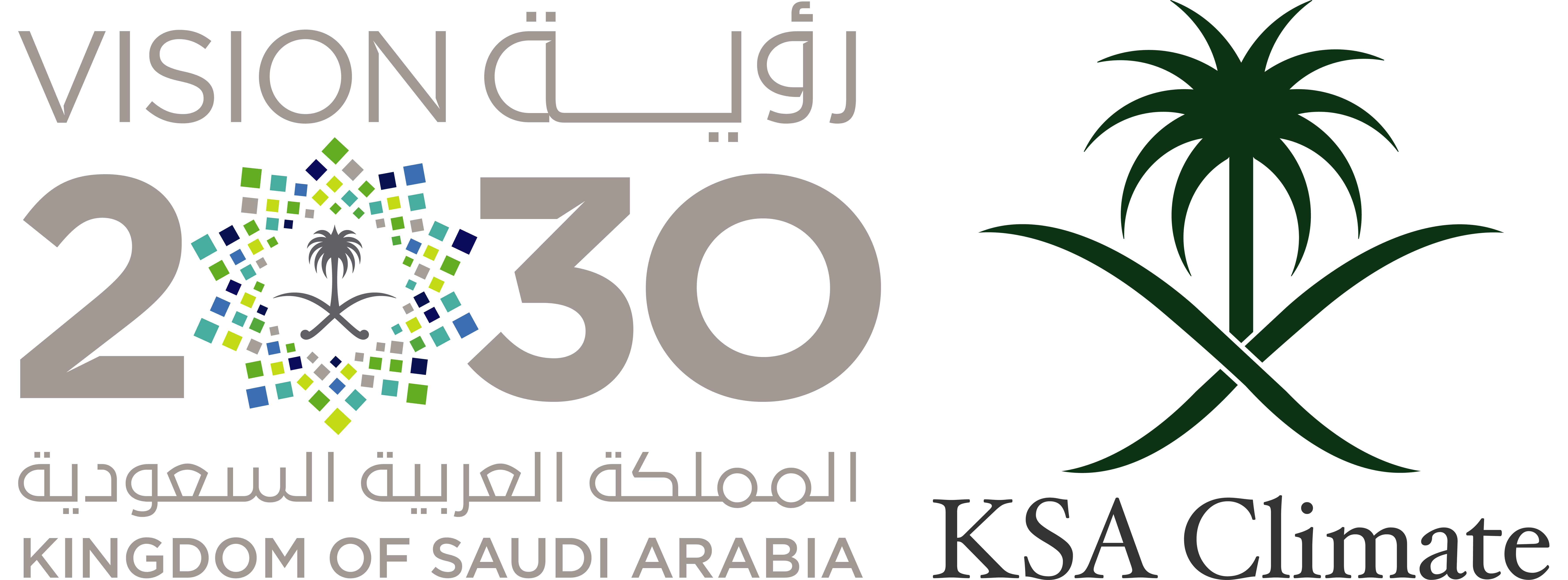 IISD Reporting Services, through its ENB+ meeting coverage, will provide coverage of selected GCC Pavilion events at the Katowice Climate Change Conference - December 2018, including written, digital and video coverage. The following event was covered by IISD Reporting Services on Wednesday, 5 December 2018:
IISD Reporting Services, through its ENB+ meeting coverage, will provide coverage of selected GCC Pavilion events at the Katowice Climate Change Conference - December 2018, including written, digital and video coverage. The following event was covered by IISD Reporting Services on Wednesday, 5 December 2018:
Photos by IISD/ENB | Natalia Mroz / Diego Noguera
For photo reprint permissions, please follow instructions at our Attribution Regulations for Meeting Photo Usage Page
Water and Wastewater Challenges in the Gulf Region
Presented by the Kingdom of Saudi Arabia
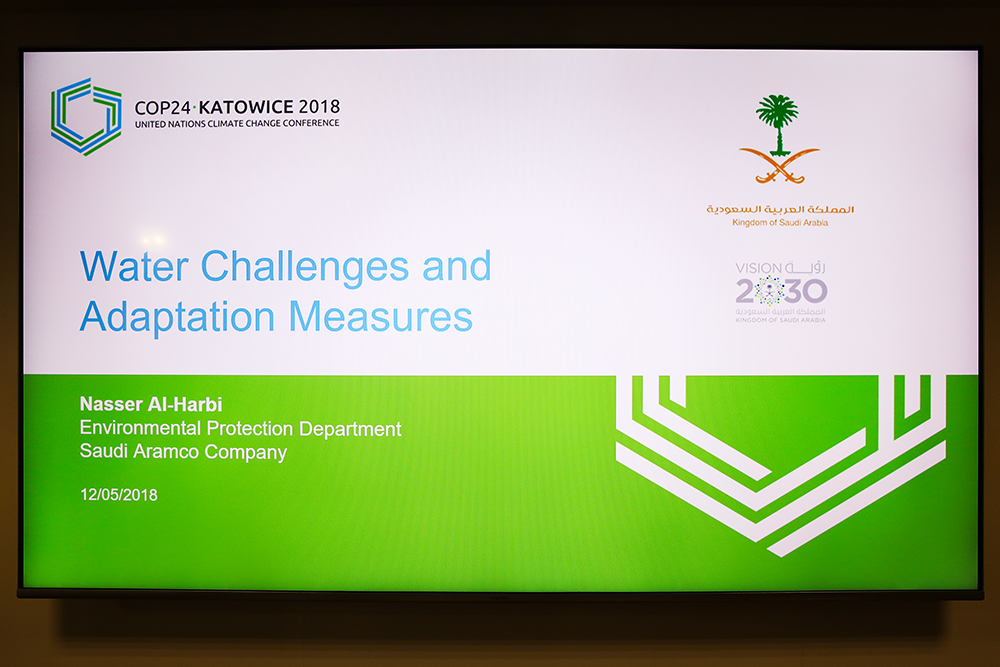
This side event focused on the water and wastewater challenges of Saudi Arabia and the Gulf Cooperation Council (GCC) countries, with panelists and participants highlighting climate adaptation and mitigations efforts to tackle challenges. During the event, panelists illustrated leadership and environmental stewardship in the GCC and its regional adaptation efforts in water conservation and water and wastewater management.
Moderator Muhammad Nadeem, Saudi Basic Industries Corporation (SABIC), opened the event by noting that Saudi Arabia is a nation of more than 30 million people facing absolute water scarcity. He emphasized the need to address wastewater challenges, singling out the oil and gas industry as the sector in the country where this challenge is most pressing. Nasser Al-Harbi, Saudi Aramco, stressed that groundwater is a precious resource for Saudi Arabia, and said that Saudi Aramco has long been working on water conservation efforts for a sustainable future. Highlighting the importance of water conservation to climate change adaptation and mitigations efforts, he described Aramco’s efforts, including through developing a water conservation policy and strategy to:
- maximize wastewater reuse;
- enhance water supply sustainability;
- optimize water demand; and
- minimize water losses.
Al-Harbi also explained that his company has developed and strengthened standards and practices that specify the proper methods of treatment and disposal of wastewater, including the Saudi Aramco environmental health code. He concluded with an emphasis on the need to contribute to greenhouse gas (GHG) emission reduction through improving water supply sustainability, saying “water is life, do not waste it.”
Himanshu Mishra, King Abdullah University of Science and Technology (KAUST), demonstrated how “super sand mulching” can be an effective solution for growing more food in drylands. This process, he reported, has been derived from nature-inspired translational research. He described how the properties of extreme water repellence of insects inhabiting water surfaces inspired the development of a sand-based mulch that repels water, which they named Super Sand. He reported that Super Sand, composed of common sand and paraffin wax, prevents water loss and evaporation, which enhances plant growth, crop yield, and lowers salt stress. He reported on greenhouse and field experiments with tomato and barley crops in Western Saudi Arabia, which have demonstrated the potential of this approach to improve crop yields by nearly 72% in comparison to the unmulched control cases. He further noted that his laboratory is now producing thousands of kilograms of Super Sand per week to support dryland food production and reported experiments with other crops such as date palms, acacia and broccoli. Innovative agricultural technologies such as these, he stressed, are coherent with the aspirations of Saudi Arabia to reduce agricultural water consumption by approximately 50% and to improve the productivity of high-value crops, as stipulated in the National Transformation Program, also known as known as Vision 2030.
Thomas Altmann, ACWA Power, noted that energy is the main cost of desalinization worldwide, and that the direct footprint of desalinization, which stands at 120 million metric tons annually, is expected to grow. Altmann said effectively combining low-carbon, renewable desalination technologies would reduce GHG emissions from desalinization. He emphasized that the use of renewable energy in seawater desalinization plays a vital role in providing a reliable, sustainable and resilient water supply in the Gulf region. He noted that reducing the energy consumption of desalination is a key prerequisite for the deployment of utility-scale renewable-driven desalination plants in the region. Presenting on solar-based desalination technologies, he suggested that concentrating solar power (CSP) technologies are currently the most advanced. CSP desalination head supply systems, he added, could be designed for low temperatures, thus avoiding expensive materials and resulting in significant cost savings compared to CSP for power generation. He said that such efficiencies are an advantage from a business point of view, and noted significant growth in salinization investment due to the falling costs of technologies.
In the ensuing discussion, participants discussed: the importance of water conservation technologies to help enhance long-term soil nutrient replenishment; opportunities and challenges for supporting the expansion of renewable energy using market mechanisms, including water and energy tariff reforms; and the possible use of sea water for growing rice.
